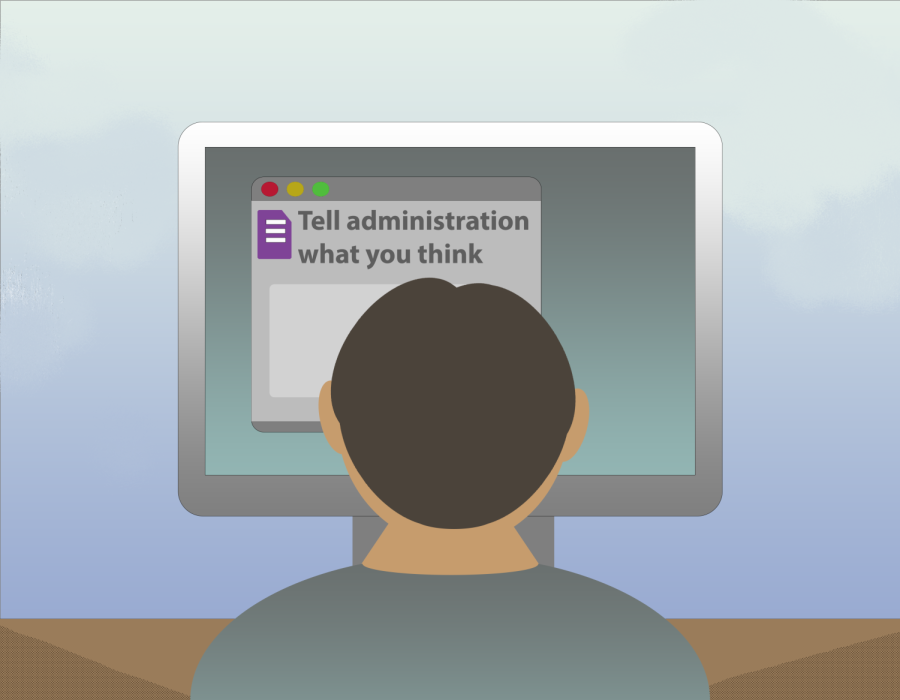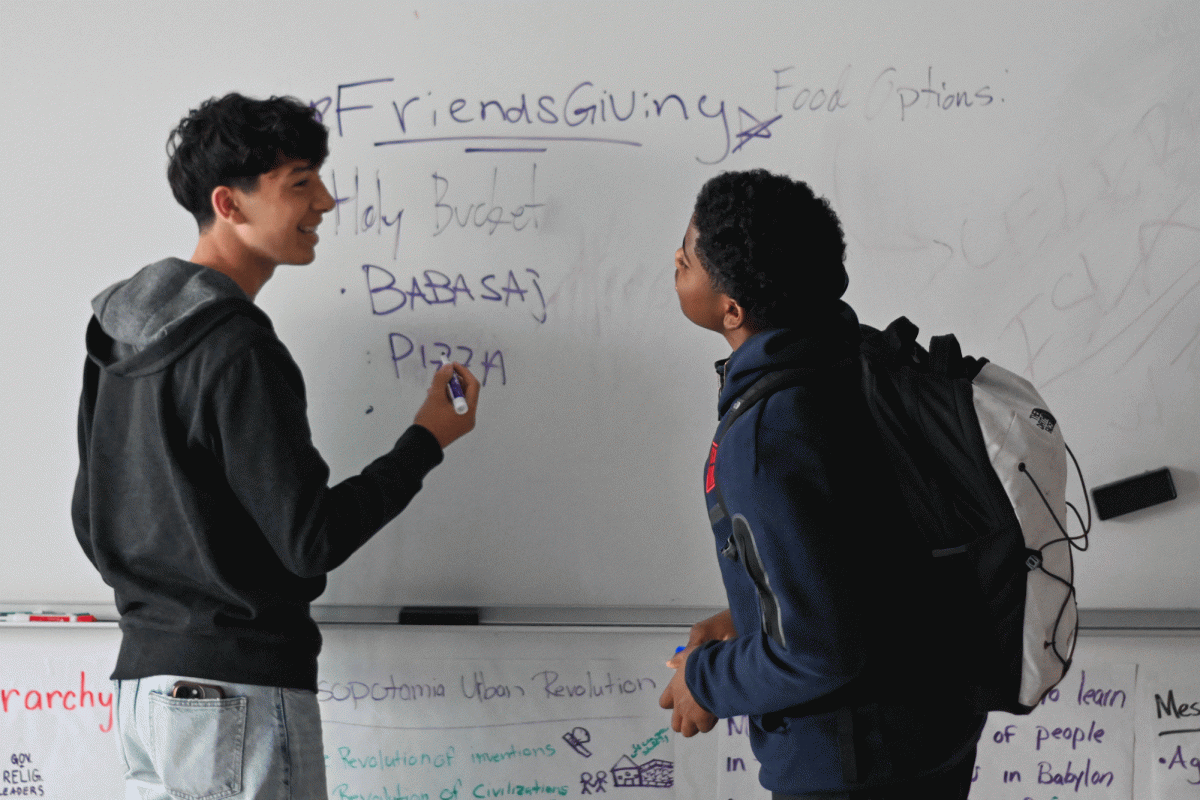Administration must engage differently
A stronger bond can prompt many positive changes
Midway illustration by Amon Gray
To value student wellbeing and concerns, the administration must have more accessible and widespread opportunities for students to freely share their thoughts, argues the U-High Midway editorial board.
May 4, 2023
As the Midway sees it…
The coming school year marks a substantial change in U-High’s administration and functions — a new schedule, principal, athletics director, assistant director of student services, and assistant director of diversity, equity and inclusion. With these changes will undoubtedly come shifts to student life.
Student concerns and wellbeing must be at the heart of these changes. Having more accessible and widespread opportunities for students to freely and completely share our thoughts to the administration will allow our voices to not fall to the background.
While this communication does currently exist, the scale needs to increase. The administration should reconfigure these guided student forums to utilize the opportunity to broaden communication to a wider audience and increase student involvement, feedback and expression. While students hold responsibility for low attendance, transparent platforms to communicate could promote interest in attending administration-led forums as the student body would be confident their voices would be heard.
This problem was emphasized during the later stages of U-High’s principal search, where each candidate hosted a drop-in session during lunch for students to get to know each potential principal. While participation was limited, the forum itself did not allow for complete expression. The students present were only permitted to ask a limited set of pre-approved questions which were printed on a list, therefore restricting their communication between students and the potential administrator. These actions dampened the efficacy of hosting an event designed to promote communication and clarity with the student body. The administration takes strong steps toward communication in organizing events such as this one, but in the future alternate arrangements of these forums could allow more people to share their voices.
The structure of future forums could promote more interaction and openness among the administration and students.
New communication pathways could also be formed to increase accessibility, transparency and ease. Rather than hosting optional sessions for students to attend during their open time, with the help of advisers, administrators could join advisories or small groups during free periods and talk with students in a relaxed, private setting when all are present. Sessions that take place during open times, lunch or after school often leave students unable to attend due to clubs, sports or other commitments, so these forums could take shape in drop-in sessions to provide a clearer place to talk.
Another alternative option to receive student feedback could be through Google Forms or a designated email, which could allow administrators to receive streamlined, available communication from students without having to schedule a set time for groups to meet.
With pathways to communication open to everyone and held regularly, administrators and Student Council officers could observe and hear about our lives and schedules, giving them a better sense of how to institute change. A more interactive setting would benefit all who are involved in making these decisions, whether that takes place during advisory, lunch or open periods.
With the new schedule for 2023-24 year eliminating a universal open period, an existing window for student body forums will be shut, raising the question of what these forums will look like in the future. As the administration reconsiders this new obstacle, this period of change presents a perfect opportunity to pave a new way so student voices can be heard.
This reflects the opinion of the U-High Midway editorial board.













Student voice • May 10, 2023 at 7:45 pm
Why not do what many schools and universities have done and ask that Lab’s Board adopt an Ex Officio Student Board Member? It could be a two year term that the student body or student council vote on. Give students a voice where it matters, and increase transparency.